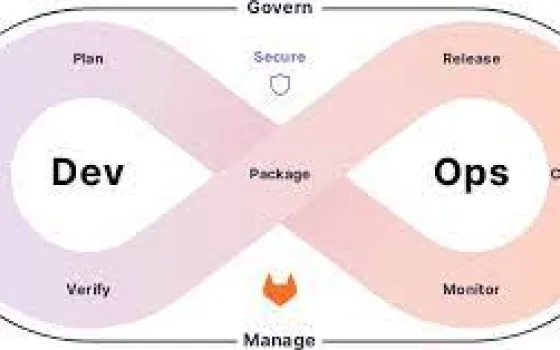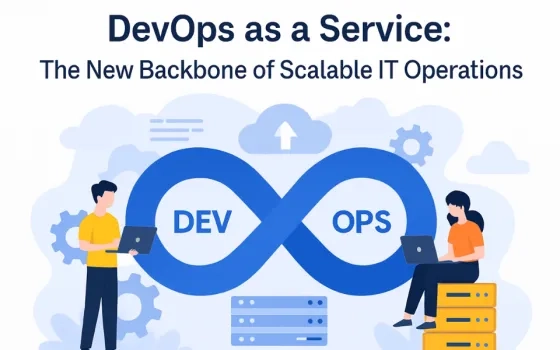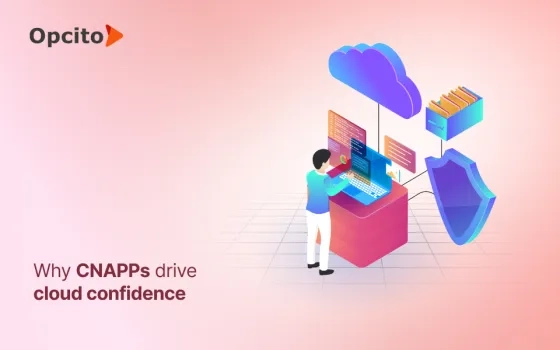In today's fast-paced and competitive digital landscape, businesses strive to deliver high-quality software products to their customers as quickly and efficiently as possible. Traditional software development practices often face challenges in meeting these demands, leading to delays, miscommunication, and reduced productivity. However, by embracing DevOps, organizations can accelerate software delivery, enhance collaboration, and achieve greater efficiency throughout the development lifecycle. This article explores the principles and benefits of DevOps and how it empowers businesses to stay ahead in the software development race.
Introduction
In the rapidly evolving world of software development, the ability to deliver high-quality applications quickly is crucial for businesses to stay competitive. Traditional approaches, characterized by siloed teams, manual processes, and fragmented communication, often lead to bottlenecks, errors, and delays. DevOps, an amalgamation of development and operations, provides a holistic approach that emphasizes collaboration, automation, and continuous improvement. By embracing DevOps practices, organizations can streamline their software delivery pipeline, enhance cross-functional collaboration, and achieve faster time-to-market.
Understanding DevOps
DevOps is a culture, set of practices, and mindset that promotes collaboration between development (Dev) and operations (Ops) teams throughout the software development lifecycle (SDLC). It aims to break down the barriers between these traditionally separate departments and foster a culture of shared responsibility, transparency, and continuous learning. DevOps emphasizes automation, continuous integration and delivery, infrastructure as code, and close collaboration between developers, testers, operations personnel, and other stakeholders.
The Principles of DevOps
DevOps is guided by several key principles that drive its implementation and success:
Continuous Integration and Delivery
Continuous Integration (CI) and Continuous Delivery (CD) are pivotal to DevOps. CI involves the frequent merging of code changes from developers into a shared repository, followed by automated build and test processes. CD builds upon CI by automating the release and deployment of software changes to production environments, reducing the time and effort required to deliver new features or fixes.
Infrastructure as Code
Infrastructure as Code (IaC) enables teams to provision and manage infrastructure resources programmatically, using configuration files or scripts. By treating infrastructure as code, organizations can automate the setup, configuration, and scaling of their environments, ensuring consistency and reproducibility across different stages of development, testing, and deployment.
Automated Testing
Automated testing plays a crucial role in DevOps, helping teams ensure the quality and stability of their software products. By automating test cases, organizations can perform comprehensive and repeatable tests, reducing manual effort and identifying issues early in the development cycle. Test automation also facilitates faster feedback loops, enabling quick bug fixes and feature iterations.
Collaboration and Communication
DevOps fosters a culture of collaboration and communication, breaking down the barriers between different teams involved in software development and operations. By promoting cross-functional collaboration, DevOps encourages developers, testers, operations personnel, and business stakeholders to work together closely, share knowledge, and align their goals and priorities.
Monitoring and Feedback Loops
DevOps emphasizes the importance of monitoring and feedback loops to gain insights into system behavior, performance, and user experience. Continuous monitoring allows organizations to proactively detect and address issues, optimize performance, and make data-driven decisions. Feedback loops enable prompt adjustments based on user feedback, driving iterative improvements and enhancing the overall software quality.
Security in DevOps
Security is an integral part of DevOps. By incorporating security practices throughout the software development lifecycle, organizations can identify vulnerabilities early on, implement secure coding practices, and automate security testing. DevOps ensures that security is not an afterthought but an inherent aspect of the software delivery process.
Benefits of Embracing DevOps
Embracing DevOps offers numerous benefits for organizations striving to accelerate software delivery and enhance collaboration:
-
Faster Time-to-Market: DevOps enables organizations to deliver new features, updates, and bug fixes rapidly, reducing time-to-market and gaining a competitive edge.
-
Enhanced Collaboration: By breaking down silos and promoting cross-functional collaboration, DevOps fosters better communication and understanding between teams, resulting in improved efficiency and productivity.
-
Continuous Feedback and Improvement: DevOps emphasizes continuous monitoring, feedback loops, and iterative improvements, enabling organizations to respond to user needs and market demands promptly.
-
Increased Efficiency and Productivity: Automation and streamlined processes in DevOps reduce manual effort, eliminate bottlenecks, and enhance overall efficiency, allowing teams to focus on value-added tasks.
-
Improved Software Quality: DevOps practices, such as automated testing and infrastructure as code, contribute to enhanced software quality, reduced defects, and higher customer satisfaction.
Overcoming Challenges
Implementing DevOps successfully may pose challenges for organizations. Some common hurdles include:
-
Cultural Resistance: DevOps requires a cultural shift and resistance to change may hinder its adoption. Building a culture of collaboration, trust, and continuous learning is crucial for overcoming this challenge.
-
Legacy Systems and Processes: Organizations with legacy systems and processes may face integration complexities. Gradual modernization and strategic planning can help overcome these obstacles.
-
Skills and Knowledge Gap: DevOps demands a broad skill set and knowledge across various domains. Upskilling and training programs can bridge the skills gap and enable teams to embrace DevOps practices effectively.
-
Security and Compliance: Integrating security practices into the DevOps workflow can be challenging. Organizations need to prioritize security and compliance requirements and implement suitable measures throughout the SDLC.
Case Studies: Successful DevOps Implementations
Several organizations have achieved remarkable success by implementing DevOps. Here are a few notable case studies:
-
Amazon: By adopting DevOps practices, Amazon improved deployment frequency, reduced lead time, and enhanced overall operational efficiency, enabling rapid innovation and scalability.
-
Netflix: Netflix embraced DevOps to streamline its software delivery pipeline and achieved faster time-to-market for new features and enhancements, providing an excellent user experience.
-
Etsy: DevOps enabled Etsy to automate its infrastructure, deploy changes more frequently, and improve stability and availability, resulting in better customer satisfaction and business growth.
Future Trends in DevOps
As the software development landscape evolves, DevOps continues to adapt and evolve. Some future trends in DevOps include:
-
AIOps Integration: The integration of Artificial Intelligence and Machine Learning with DevOps practices can enable intelligent automation, predictive analysis, and enhanced decision-making.
-
DevSecOps: DevSecOps integrates security practices into the DevOps workflow, emphasizing secure coding, vulnerability management, and compliance throughout the SDLC.
-
Serverless Computing: Serverless architectures offer scalability, cost-efficiency, and simplified deployment. DevOps teams are leveraging serverless computing to streamline application development and deployment processes.
-
Cloud-native DevOps: Cloud-native technologies, such as containers and microservices, are gaining prominence in DevOps environments, enabling scalability, portability, and faster development cycles.
Conclusion
In conclusion, embracing DevOps practices is vital for organizations aiming to accelerate software delivery, enhance collaboration, and achieve increased efficiency. By breaking down silos, automating processes, fostering collaboration, and embracing a culture of continuous improvement, businesses can stay ahead in the fast-paced world of software development. DevOps certification plays a crucial role in equipping professionals with the necessary skills and knowledge to implement DevOps principles effectively. With DevOps certification, individuals can demonstrate their expertise and commitment to excellence in driving successful DevOps transformations. By leveraging the power of DevOps and obtaining DevOps certification, organizations can meet customer expectations, respond quickly to market demands, and drive innovation in the digital landscape.















